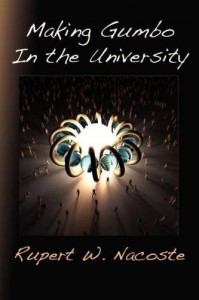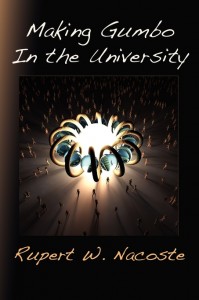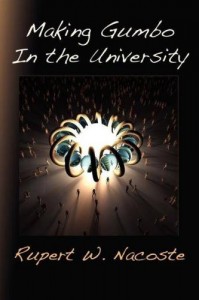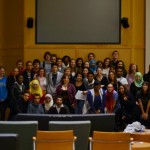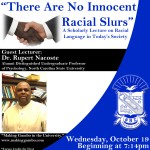Dating and marriage are in chaos. Relationships aren’t happening, aren’t working the way we dreamed, the way we always hoped they would.
    With lamentation in her voice, Natasha Bedingfield sings:
                                                                                                          Who doesn’t long for someone to hold…
Who knows how to love you without being told…
Somebody tell me why I’m on my own…
If there’s a soulmate for everyone…
    More than ever, people want to know how relationships work. Jordan Sparks sings:
     Why does love always feel like a battlefield, a battlefield, a battlefield?
     Almost as if he is in conversation with Natasha and Jordan, John Legend sings:
                                                                                                    Â
‘Cause everybody knows, that nobody really knows
How to make it work, or how to ease the hurt
We’ve heard it all before, that everybody knows
How to make it right, I wish we gave it one more try
‘Cause everybody knows, but nobody really knows…
  Â
    To get answers to their relationship questions, to find love that lasts, to figure out how to manage their relationships, people are reading relationship columns, blogs, and books. No doubt, more than ever, people are wondering whether there is a course to take to at least understand what the hell is going on. Well, is there?
    Yes there is.
      And I have been teaching that course to college students since 1999.Â
    When the summer of 1999 rolled around, I had been teaching social psychology for about 10 years. And I wasn’t happy.
    Oh, I liked being a professor.Â
   And I liked teaching the social psychology course. But I wasn’t happy with the way the field of social psychology was being covered by the textbooks.Â
    All of the social psychology textbooks had the same organization, and that meant that interpersonal relationships were buried in chapter 9 or 10 somewhere. All the textbooks start with psychological stuff; how we think about things; how we feel about things.  My training and my life experience told me that that’s not social.Â
    How can we call ourselves social psychologists if we wait to show what we know about relationships so late in our coverage of social psychological topics and research? How can we offer people any help with their interpersonal relationships if we talk as if all that matters is how we think?
    I was really irritated by this because using any textbook almost forced me to teach the course in the way the textbook was organized.
    I was not happy.Â
    So, I did something that some of my colleagues thought a little crazy. I threw away all of the lectures I had developed, used, and refined over ten years.Â
    I threw them away.
     Then I said to myself, ok Rupert… put your time where your mouth is. I said to myself, if you can teach the course in a new way, then you can write a new kind of social psychology book. Come up with a better way to organize a book and then teach the course that way.Â
    That’s what I did. I created a new social psychology course.
   In that course, I do not offer one-shot solutions to problems that occur in relationships. What I do is teach students about the nature of being interdependent with another person. All relationships are relationships of interdependence; each person depends on the other person for interpersonal satisfaction. And it turns out that being interdependent with someone, in romance or friendship, has no one-shot, one-answer solution.Â
    Interdependence in its completeness is something we all need and want to understand. We search for, we long for interdependence. We have different ways of stating this longing. We say “someone to love me.â€Â We say “someone to watch over me.â€Â However it is phrased, what we search for in interdependence with another person is safety… home.Â
    Yet despite our longings to be interdependent, we don’t do it very well. Why is that? Simple; it takes time to learn how interdependence really works. That’s the point of my course; to give people a framework, a lens, an eye, through which to see how the interpersonal works. So, in my course we take on these questions:
 What is an interpersonal relationship?
Why are interpersonal relationships so difficult to manage?
What are the types of interpersonal relationships?
What are the general requirements of interpersonal relationships?
What dimensions of interdependence lead us to feel safe in our relationships?
What can go wrong in our relationships because we are so motivated to find safety in our relationships?
    Even books by therapists do not take on these essential questions. Books like The Dance of Anger are books that try to heal the charred skin that remains after people have been burned by trying and failing to find relationship satisfaction by living out their relationship-stereotypes and romantic ideals. My course is about prevention.
    My idea is that if we give people a realistic, scientifically established, understanding of how interpersonal relationships work, that will go a long way to preventing people from throwing themselves into the fiery pit of relationship confusion and eventual anger. Once I started teaching my course the new way, with the entire focus of the course on relationship-development, students went wild.
    Students started evaluating the course with comments like this:
    “I would just like to say that I’m glad that I had the opportunity to rid myself of my romantic ideals about relationships. Although the truth is cold and the reality even colder, at least through the knowledge I have learned in this course I no longer feel lost, confused, or that I will be wasting my time with bad relationships in the future. I now feel as though I have a real chance at developing a genuine, healthy, longstanding, love-filled communal relationship.â€
    Also evaluating my course, another student wrote:
    “An excellent course. This should be taught in high schools!! This should be made a university-wide requirement [because] this course… enhances students’ maturity in dealing with others, both in intimate relationships and friendships.â€
    So hold on; in my posts up until Summer, 2012, I will give you a glimpse into the teachings of my course. One of the themes of the course is this: Relationships present to us problems to solve. That means that relationships require work. What surprises my students is that some of that work is us working to understand ourselves.
    Come go with me into a glimpse of a course that causes students to learn to accept the fact that it is only through relationships, through interdependence, that we can discover our authentic-self. Paul Laurence Dunbar, the poet, puts the invitation and experience I am offering, this way:
 Come, come away to the river’s bank,
Come in the early morning;
Come when the grass with dew is dank,
There you will find the warning –
A hint in the kiss of the quickening air
Of the secret that birds and breezes bear.
    Come along for a glimpse into a course that helps people develop a new way of looking at the interpersonal. Come along for a glimpse into a course that makes the secrets of managing interdependence coherent; the “…secret that birds and breezes bear.â€Â Â
    Come; let’s make our way home.





